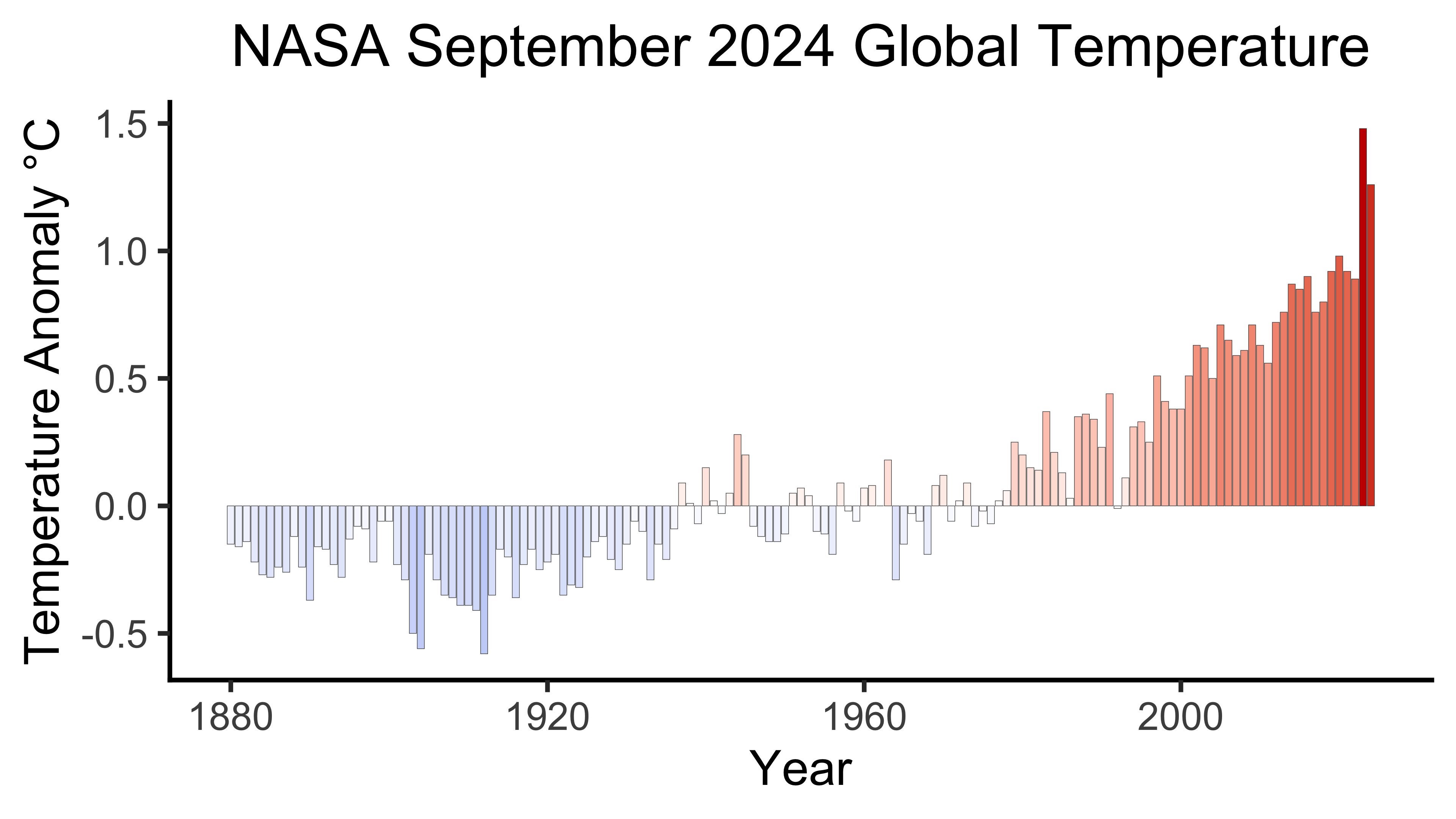Earth is likely to have its hottest year on record – again
NASA’s top climate scientist says the planet is being tested and ‘we have not yet passed that test’

Your support helps us to tell the story
From reproductive rights to climate change to Big Tech, The Independent is on the ground when the story is developing. Whether it's investigating the financials of Elon Musk's pro-Trump PAC or producing our latest documentary, 'The A Word', which shines a light on the American women fighting for reproductive rights, we know how important it is to parse out the facts from the messaging.
At such a critical moment in US history, we need reporters on the ground. Your donation allows us to keep sending journalists to speak to both sides of the story.
The Independent is trusted by Americans across the entire political spectrum. And unlike many other quality news outlets, we choose not to lock Americans out of our reporting and analysis with paywalls. We believe quality journalism should be available to everyone, paid for by those who can afford it.
Your support makes all the difference.This year is likely to be Earth’s hottest on record once again, according to NASA’s chief climate scientist.
Dr. Gavin Schmidt, the director of NASA’s Goddard Institute for Space Studies, wrote on social media Tuesday that new data from September had made it “almost certain to be a new annual surface temperature record.”
This year, the Earth is expected to see temperatures that are more than 2.1 degrees above the average - which is where it sat in 2023 when it set the record.
In August, the European Copernicus Climate Service also projected that this year would be the hottest on record.
“The long-term trends are entirely due to our impact on climate and we aren’t really slowing down as a globe, though we’re slowing down in various places. But, globally, we’re not slowing down and so that is going to continue to push us higher,” Schmidt told The Independent on Tuesday.

Schmidt’s findings comes as his agency announced that last month was the second-warmest September on record: the first non-record breaking month in over a year. The news ended an unprecedented 15-month streak of consecutive new records.
These projections come as scientists expect a weak La Niña climate pattern to develop later in the year, bringing colder weather to the northern US and wetter weather in the South. The year started with its warmer phase, El Niño. Although that ended in May, global temperatures have remained high and the US has felt some major heat through October.
With the (belated) September data now in, the updated prediction is that 2024 is almost certain to be a new annual surface temperature record, and possibly by more than 0.1ºC. 50% change of exceeding 1.5ºC above the late 19th C.
— Gavin Schmidt (@climateofgavin.bsky.social) October 22, 2024 at 10:22 AM
[image or embed]
However, the next few months are projected to be pretty neutral, and NASA isn’t anticipating something that could suddenly cool the climate.
Schmidt explained climatologists generally expect El Niño events to nudge the planet into “warmer territories.”
“And so, this year, we started off with an El Niño and so we predicted at the end of last year that 2024 would [have a] 50 percent chance that it would be the warmest year. Now, it’s actually been warmer than we predicted,” he said. “So, there may well be something else going on.”
While multiple factors contribute to rising temperatures – the sun recently reached the solar maximum period of its cycle, leading to increased activity -- the reason for last year’s record warmth is still unexplained.

“And so, the same unexplained thing that nudged 2023 warmer is likely also nudging 2024 warmer. But, we did expect it to be the warmest year on record right at the beginning,” Schmidt said. Next year won’t start with an El Niño event and there might be relief from these kinds of headlines.
The main culprit remains the incessant emissions of greenhouse gases by the fossil fuel industry. The answer to slow warming is to reduce those emissions.
“We’re being tested. The planet is testing us to see if we can explain things that we didn’t anticipate,” said Schmidt. “And, we have not yet passed that test.”
Join our commenting forum
Join thought-provoking conversations, follow other Independent readers and see their replies
Comments